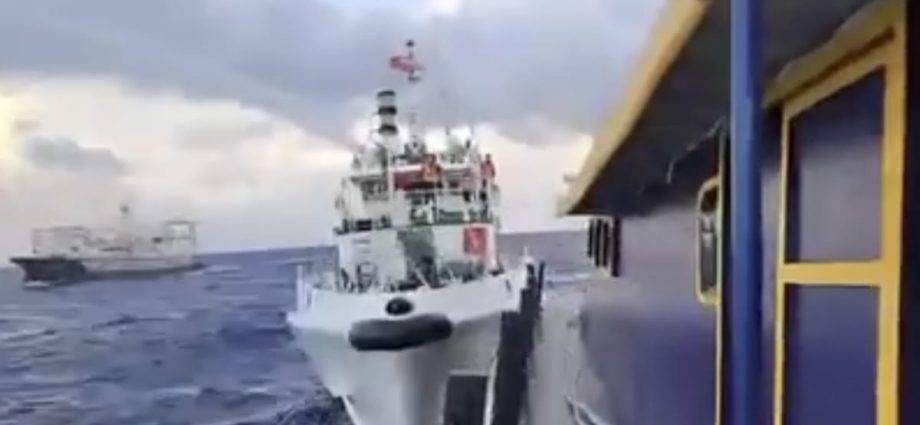
“DANGEROUS AND DESTABILISING”
On Sunday, the US State Department called on China to halt its “dangerous and destabilising” actions in the sea, while foreign diplomats in Manila also criticised China’s behaviour.
The confrontations at Scarborough Shoal and Second Thomas Shoal were the most intense between Philippine and Chinese vessels in years, analysts said, as the countries seek to assert their competing maritime territorial claims.
“I expect that this will become even more frequent and persistent,” said Jay Batongbacal, director of the University of the Philippines’ Institute for Maritime Affairs and Law of the Sea.
“We should use the opportunity to build up our alliances and partnerships, and to prepare for the worst as it is clear that they will continue to deprive us of access to our rights and resources as a country,” Batongbacal told AFP.
Song Zhongping, an analyst and former officer in the Chinese military, said US support for the Philippines was making Manila feel “emboldened to provoke China”, which was exacerbating tensions.
“If the Philippines clings to its course and feels that it can provoke China with the support of countries outside the region … then conflict or some other contingency could erupt at Ren’ai Reef or Huangyan Island,” Song said, using the Chinese names for Second Thomas Shoal and Scarborough Shoal.
China seized Scarborough Shoal from the Philippines in 2012 following a tense standoff, while the Philippine Navy deliberately grounded a World War II-era navy ship on Second Thomas Shoal in 1999 to check China’s advance in the waters.
Relations between Manila and Beijing have deteriorated under President Ferdinand Marcos, who has sought to improve ties with traditional ally Washington and deepen defence ties in the region, while also pushing back against Chinese actions in the South China Sea.
In a statement late Sunday, Marcos said the Philippines remained “undeterred” following the latest incidents.
“No one but the Philippines has a legitimate right or legal basis to operate anywhere in the West Philippine Sea,” Marcos said, using Manila’s term for the South China Sea waters to the immediate west of the Philippines.

